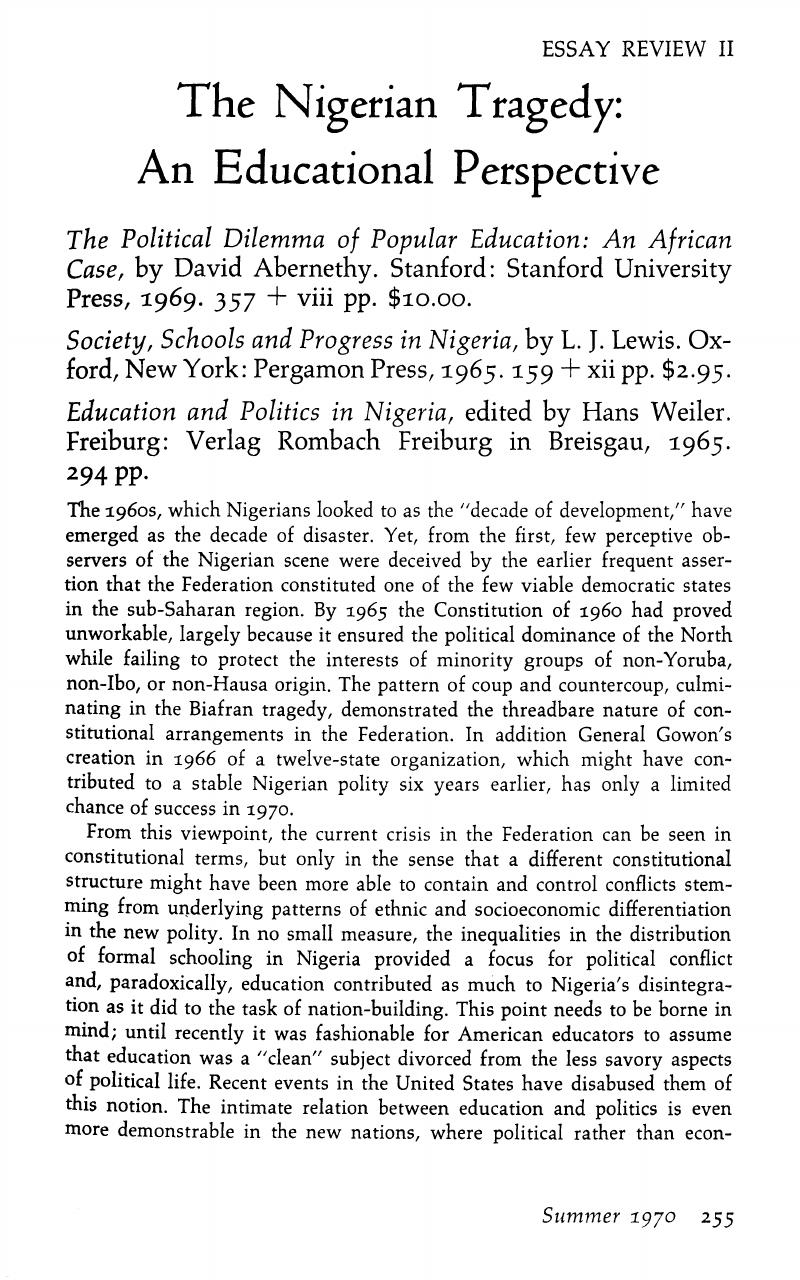No CrossRef data available.
Published online by Cambridge University Press: 24 February 2017

1. See LeVine, Robert A., Dreams and Deeds: Achievement Motivation in Nigeria (Chicago: University of Chicago Press, 1966).Google Scholar
2. Although independence did not come to Nigeria until 1960, African ministers were responsible for the direction of regional educational policy throughout most of the 1950s.Google Scholar
3. See for example Arch Callaway's early articles in West Africa. Callaway, Arch C., “Primary School-leavers in Nigeria,” West Africa, (March, April 1961).Google Scholar
4. Investment in Education. Report of the Commission on Post-School Certificate Higher Education in Nigeria (Lagos: Federal Ministry of Education, 1960). Sir Eric Ashby is Master of Clare College, Cambridge, and was formerly President and Vice-Chancellor of the Queen's University, Belfast. From 1958 to 1960 he was chairman of the “Ashby Commission.” He is still Honorary Advisor to the Nigerian National Universities Commission and is a member of the Council of the University College at Makerere, in Uganda.Google Scholar
5. See Jolly, Richard, “Costs and Confusions in African Education: Some Implications of Recent Trends,” pp. 47–62 in Education in Africa: Research and Action, ed. Jolly, Richard (Nairobi: East Africa Publishing House, 1969).Google Scholar